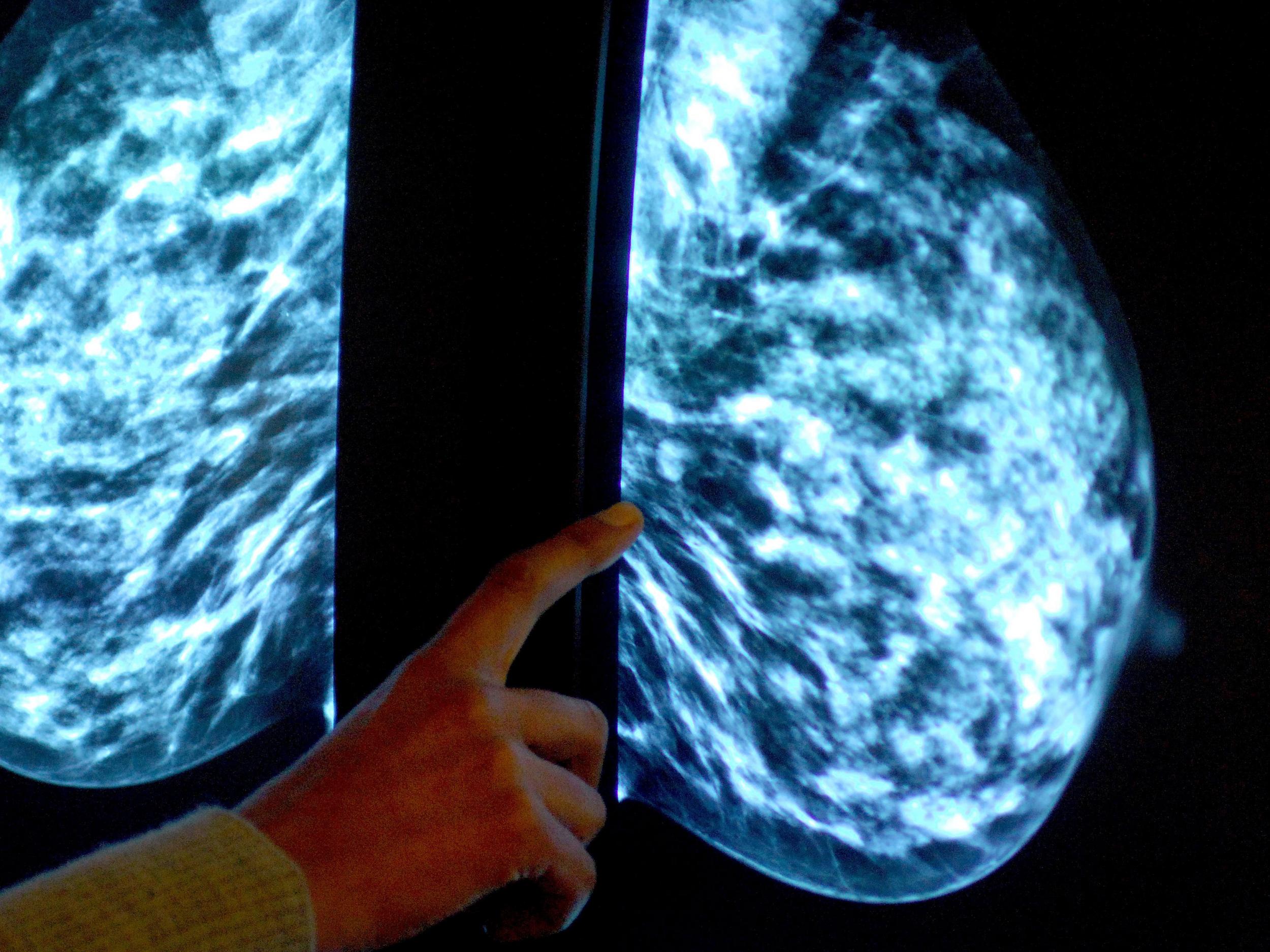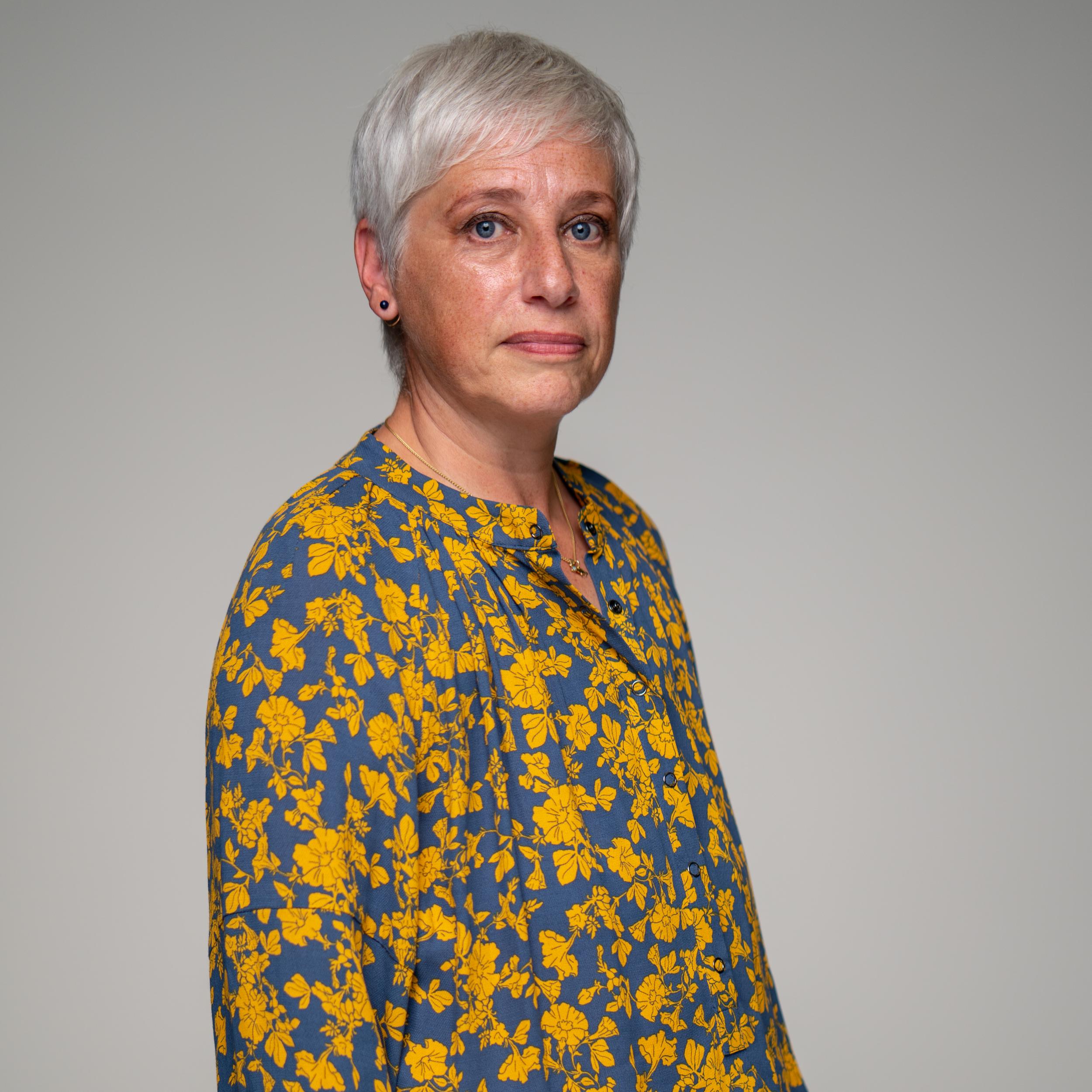Breast cancer deaths to rise by 2022 unless government tackles unacceptable care ‘postcode lottery’, charity warns
Outrageous that 'geographical pot-luck' in survival rates is costing more than 1,000 lives a year

Your support helps us to tell the story
From reproductive rights to climate change to Big Tech, The Independent is on the ground when the story is developing. Whether it's investigating the financials of Elon Musk's pro-Trump PAC or producing our latest documentary, 'The A Word', which shines a light on the American women fighting for reproductive rights, we know how important it is to parse out the facts from the messaging.
At such a critical moment in US history, we need reporters on the ground. Your donation allows us to keep sending journalists to speak to both sides of the story.
The Independent is trusted by Americans across the entire political spectrum. And unlike many other quality news outlets, we choose not to lock Americans out of our reporting and analysis with paywalls. We believe quality journalism should be available to everyone, paid for by those who can afford it.
Your support makes all the difference.The number of women dying from breast cancer in the UK is set to start rising again by 2022, and decades of improvement could be lost because of “stark” variation in waiting times, screening and care, a charity has warned.
Growth in survival is “stalling” and NHS funding for cancer services is not keeping pace with rapidly increasing numbers of cases, according to a major report by charity Breast Cancer Now.
The government must act now to save thousands of lives by funding cash-starved preventative services and ironing out variation between NHS areas with the best and worst survival rates.
“This projected rise in breast cancer deaths is deeply worrying, but it is not too late to stop it,” Baroness Delyth Morgan, the charity’s chief executive said.
Though survival gains have been made, she says these are “not sustainable without more investment.”
“We know progress is achievable by tackling the unacceptable geographic variation in NHS diagnosis and care, improving screening attendance and supporting more women to make sustainable lifestyle changes,” Baroness Delyth added.
“With over 11,000 families still being torn apart by metastatic breast cancer each year in the UK, we need to do much, much more.”
Breast cancer deaths have trended down since 1989 and currently 11,500 people will lose their life to the disease each year, out of nearly 55,000 new diagnoses.
The projections in the 55,000 reasons report, a reference to the number of women diagnosed each year, suggest this will stall completely by 2021 – at around 11,095 deaths.
But there could be as many as 11,876 deaths a year by 2033 without action.
The charity is issuing its warning now to ensure health service officials and ministers recognise the pressing demand while drawing up the NHS 10 Year Plan, and in the Autumn Budget.
Deaths are set to rise, in part, because of the UK’s gradually ageing population, but the charity says that 23 per cent of cases are “preventable” if the government can halt a growing obesity crisis, harmful drinking and physical inactivity.
Breast cancer prevention could save £2bn a year in England alone over the next decade, but public health budgets, which fund weight loss classes and smoking cessation, have fallen 5 per cent since 2014 and are due to be cut further.
The charity also warns that uptake of routine NHS breast cancer screening is at a “decade low” and the “breast imaging and diagnostic workforce is in crisis when demand is higher than ever”.
We have no funding, so we can’t give it to you at the moment
Juliet, 57, from Hertforshire, had her cancer picked up at her second routine screening mammogram, she had a mastectomy to remove her breast after surgery was unable to remove the entire tumour but is now cancer free.
Through a patient’s Facebook group she heard about a class of drugs called bisphosphonates which have been shown to help prevent breast cancer spreading and returning after treatment in older women.
“So after my chemo I asked my breast care nurse, and they basically said ‘yes we do it here, but we have no funding for it so we can’t give it to you at the moment,” she told The Independent.
“It just feels a little bit unfair that where I live is determining what treatment I can get, potentially this treatment could help my cancer not recur.
“Initially I was pretty shocked, I kept asking every few months if the treatment had come through but it hadn’t and eventually my window – where the treatment would be effective – ran out and I didn’t get it.”

Juliet says this was the “only negative” in her NHS treatment, and Breast Care Now has previously highlighted it as an example where lives are being lost – and costs created - because of variation in NHS budgets.
Some areas are particularly hard hit and the charity estimates 1,100 lives would have been saved in 2016 if all NHS clinical commissioning group’s performed as well on cancer mortality as the top 25 per cent of regions.
Labour’s shadow health secretary, Jonathan Ashworth, said that the the government was “failing” patients.
“The number of people needing cancer treatment has risen sharply and the truth is that government has failed to deliver the extra resources that are needed,” Mr Ashworth said.
“With cancer targets repeatedly missed, shortages of specialist staff and with the recent scandal in breast screening there is a real sense that Government is failing cancer patients and their families.
The Department of Health and Social Care was approached for comment.
- An earlier version of this article reported data published by the NHS that 48 women die of breast cancer for every 100,000 diagnosed in Morecambe Bay CCG, Lancashire. Following publication of our article, the NHS corrected its data to 30 women dying for every 100,000 diagnosed in Morecambe Bay.
Join our commenting forum
Join thought-provoking conversations, follow other Independent readers and see their replies
Comments